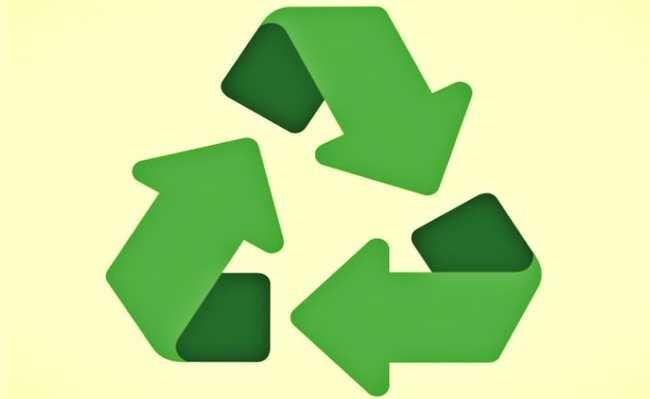Thermal paper of receipts: to recycle or not to recycle?
Thermal paper recycling can increase human exposure to a harmful substance called bisphenol

Anyone who is used to shopping, eating in restaurants or having a card, has probably already had a wallet full of tax coupons, bank statements and other vouchers and receipts made of thermal paper. These are known as thermo-sensitive papers and are so named because the data is printed thermally (ie, done by heating). Although they seem harmless, this type of paper has bisphenol in its composition, which is a substance potentially harmful to human and animal health. Despite being recyclable, products recycled from thermal paper increase human exposure to bisphenol. Thus, the ideal is to avoid using this type of paper and, when it is not possible to avoid its printing, the disposal should be done in the common trash.
Bisphenols are generally endocrine disruptors as they alter the functioning of the hormonal system. One type of bisphenol found in thermal paper is bisphenol A (BPA). This component, when in contact with the human body, can cause abortion; reproductive tract abnormalities and tumors; breast and prostate cancer; attention deficit; of visual and motor memory; diabetes; decreased sperm quality and quantity; endometriosis; uterine fibroids; ectopic pregnancy (outside the uterine cavity); hyperactivity; infertility; changes in the development of internal sexual organs; obesity; sexual precocity; mental retardation and polycystic ovary syndrome (learn more about it in the article: "What is BPA? Know Bisphenol A and be on the safe side").
Normally, contamination occurs through ingestion, BPA is released from containers and ends up contaminating the food. A survey published by Analytical and Bioanalytical Chemistry, showed that, in the case of thermal paper, contamination can occur through contact with the skin. According to the research, the contamination varies according to the amount of bisphenol present in the composition of the paper, and is much smaller than the contamination by ingestion, but it can still be harmful - especially for workers who are in daily contact with these types of receipts. . It is possible to find BPA free thermal paper. However, bisphenol S and bisphenol F are used in their place, whose effects on human health are similar or worse than the effects of BPA (learn more about this topic in the article: "BPS and BPF: know the danger of alternatives to BPA ").
If discarded incorrectly, receipts containing bisphenol can end up in the ocean and end up trapped in polar ice and rocks, becoming part of the environment and the organism of animals, causing serious environmental damage.
In animals, bisphenols cause cancer, negative effects on mammalian testes, pituitary gland, reproduction of female mammals and fish. They cause reductions in populations of dolphins, whales, deer and ferrets; impair the development of bird eggs; cause sexual deformities in reptiles and fish; changes in amphibian metamorphosis and many other damages.
Thermal paper is not the only source of exposure to bisphenol. This substance is present in food packaging, makeup, toothpaste, among others. But whenever possible, avoid printing receipts. This way, you reduce exposure to bisphenol on both the cashier's part and your own.
Why not recycle?
The disposal of products containing bisphenol, such as thermal paper, is a big problem. First, if they are incorrectly disposed of, in addition to causing visual pollution, these materials begin to release bisphenol into the environment, contaminating groundwater, soil and the atmosphere, which can end up in food, water resources and harm people and animals in the most serious ways possible.
- Toilet paper: impacts of use and alternatives
On the other hand, if the material containing bisphenol is destined for recycling, depending on the type of material it turns into, it can have a greater impact on human health. An example in this regard are recycled toilet papers from papers containing bisphenol. Recycled toilet paper containing bisphenol is a more serious exposure, as it comes into direct contact with the most sensitive mucous membranes and ends up directly in the bloodstream.
Furthermore, encouraging the recycling of products containing bisphenol is encouraging the permanence of this type of substance in people's daily lives and in the environment.
The best option is the most radical reduction possible of this type of product. When it is not possible to bring consumption to zero, keep your thermal papers and pack them firmly in non-biodegradable plastic bags (so they do not leak) and send them to safe landfills, as there they will not run the risk of leaking into groundwater or soil .
- Garbage separation: how to properly separate garbage
The problem is that there will be an extra volume in landfills. So, it is also necessary to pressure regulatory bodies and companies to stop using substances as harmful as bisphenol A and its substitutes; mainly, or at least, in food packaging and other containers that are sources of more significant exposure. After all, exposure to bisphenol can be harmful even at low doses.










